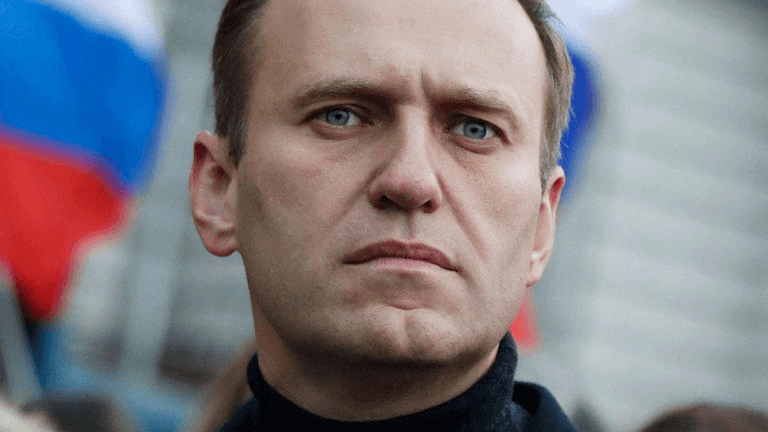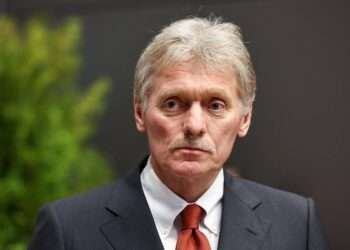Brazilian President, Luiz Inácio Lula da Silva has taken a contrasting stand on the tragic death of Russian opposition leader, Alexei Navalny.
Following the news of Navalny’s death, the global arena erupted with outrage with Western leaders leading the charge in blaming Russian President Vladimir Putin and his administration.
United States President Joe Biden did not mince words, accusing Putin and “his thugs” of direct responsibility.
While Western leaders rush to point fingers and assign blame, Lula advocates for a measured approach—a thorough investigation before casting aspersions.
Lula said that refraining from taking a stance on the death at this moment was a matter of “common sense.”
“A citizen died in prison, I don’t know if he was ill or had any issues,” Lula said.
He added, “To make an accusation is to trivialise. I hope that a coroner will provide an explanation for why the individual died, that’s all.”
Lula’s stance presents a compelling alternative—one that prioritizes due process over hasty conclusions, prompting questions into the narratives that often dominate headlines, asking whether we should pause and ponder the nitty-gritty of Navalny’s case before casting Putin as the sole villain.
Lula’s approach echoes a fundamental principle of justice: the presumption of innocence until proven guilty.
However, one cannot help but hold Putin responsible for Navalny’s death as in one way or the other, Putin’s critics have met their untimely demises.
The complexity surrounding Navalny’s demise also gives Putin away.
Navalny spent years enduring some of the worst excesses of the Russian prison system. The country’s penal colonies are notorious for their grim conditions and the opposition leader was singled out for particularly cruel treatment.
Whatever the circumstances of his death, years of mistreatment support the widespread view held by his supporters that the Kremlin was responsible.
Days after the imprisoned opposition leader’s death in custody, uncertainty continues to surround the whereabouts of his body and what it may reveal about how he died.
Alexei Navalny’s allies have accused the Kremlin of “covering their tracks.”
Navalny’s mother, Lyudmila Navalnaya, and his lawyer travelled over the weekend to the notorious “Polar Wolf” IK-3 penal colony in Russia’s Arctic north, where Navalny had been held since last year, to track down his body, but received contradicting information from various institutions over its location and left without recovering or seeing her son.
The conflicting reports added to the lingering haze over Navalny’s final hours as his allies called for Moscow to provide more information.
“They’re driving us around in circles and covering their tracks,” Navalny’s spokesperson, Kira Yarmysh, said.
Even grieving is not without risk in Russia. More than 350 people have been detained at the impromptu memorial services across 32 Russian cities since the death of Navalny, according to the rights group OVD-Info.
Russian courts have handed prison terms of up to 14 days to scores of people, with 154 sentenced in St Petersburg alone.
More than 12,000 people have submitted requests to the Russian government asking for the politician’s remains to be handed over to his relatives, OVD-Info said on Sunday.
The tragic death of Navalny undoubtedly demands answers, and justice must prevail.
Navalny’s Widow To Meet EU Foreign Ministers
Yulia Navalnaya, the widow of the late Russian opposition leader Alexei Navalny, will meet European foreign ministers in Brussels on Monday, the European Union’s foreign policy chief said.
“On Monday, I will welcome Yulia Navalnaya at the EU Foreign Affairs Council,” Josep Borrell said late on Sunday on X.
“EU Ministers will send a strong message of support to freedom fighters in Russia” and “honour” Navalny’s memory, he said.
On Friday, February 16, 2024, afternoon, Navalnaya appeared before an audience of leaders, diplomats and other officials at the Munich Security Conference.
She disclosed that she had weighed coming out on stage or immediately leaving to be with the couple’s two children, Daria and Zakhar.
Nonetheless, she stayed, deciding that her husband would want her to speak.
In her address, she noted that if the news of her husband’s death was true, “I want Putin, his entire entourage, Putin’s friends, his government to know that they will bear responsibility for what they did to our country, to my family, to my husband.”
READ ALSO: Russia Claims Control Of Avdiivka





















